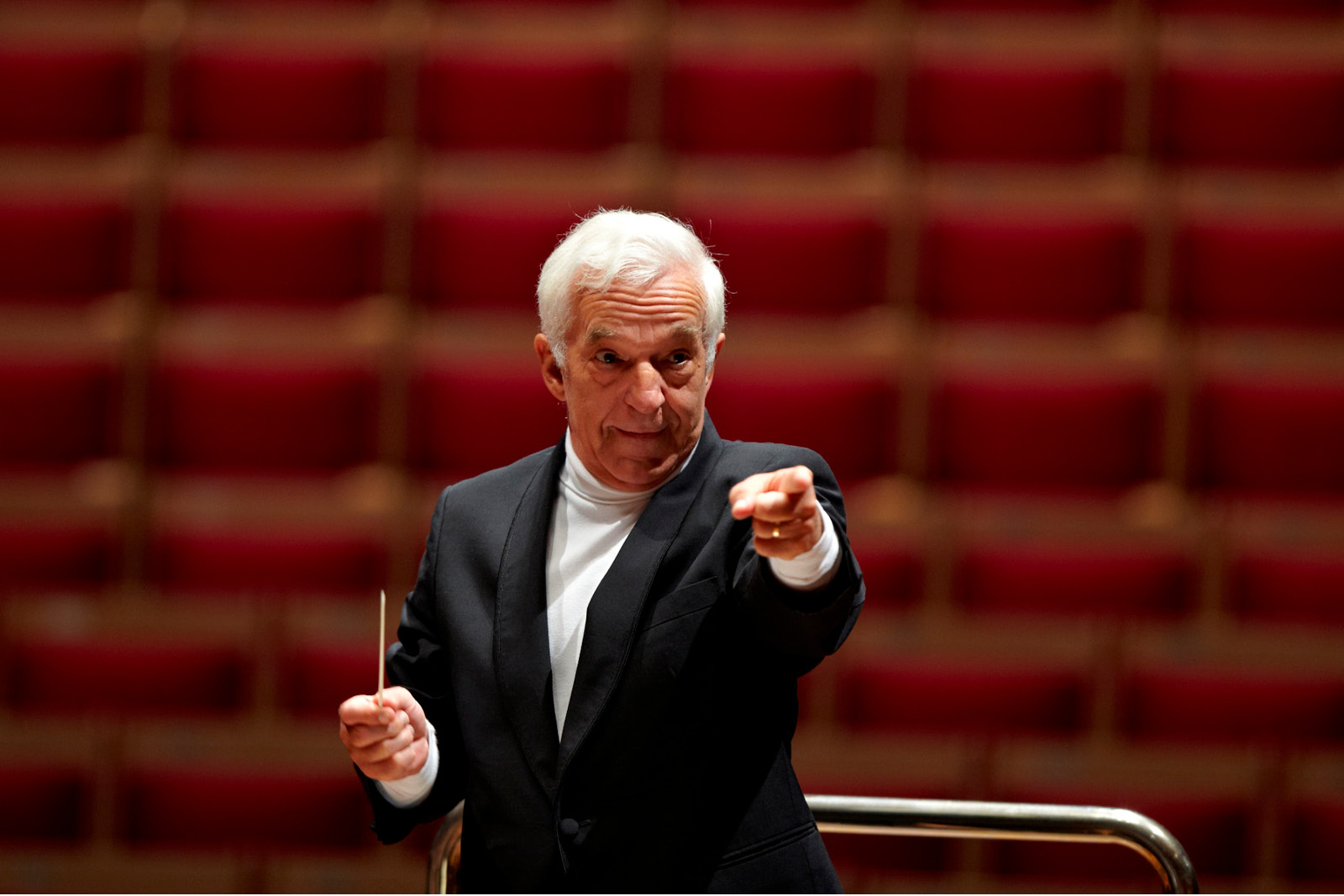Last week Vladimir Ashkenazy, the Sydney Symphony Orchestra’s Conductor Laureate, treated audiences to a program of well-worn (but well-loved) English classics, and while on the surface this concert appeared to be in the same vein – thanks to the headlining of Holst’s popular orchestral suite The Planets – the first half was devoted to a much rarer Russian work, Nikolai Medtner’s mammoth Piano Concerto No 1.
 Vladimir Ashkenazy. Photo © Keith Saunders
Vladimir Ashkenazy. Photo © Keith Saunders
Largely overshadowed by his fellow pianist-composer contemporary – and friend – Sergei Rachmaninov, Medtner’s music has something of an Australian connection, with Geoffrey Tozer’s advocacy helping to drive a reassessment of the neglected composer, including an award-winning recording of all three Piano Concertos (the composer’s only orchestral works) with the London Symphony Orchestra and Neeme Järvi in 1992. More recently, Jayson Gillham followed with his own recording of the First with the Melbourne Symphony Orchestra and Benjamin Northey. For all that, though, this is the first time the Sydney Symphony Orchestra has tackled the mammoth concerto, which was composed between 1914 and 1918, before the composer left the Soviet Union to settle, ultimately, in London.
The work had a robust champion in Russian pianist Alexei Volodin, who delivered the opening gesture with decisive strength, a heavier approach than Gillham’s more spritely account, but kicking off a nonetheless swift flowing tempo. Volodin is a forceful player, with an almost percussive touch, which helped cut through Medtner’s thick orchestration, before he eased off in the gentler second theme. Throughout the large single-movement concerto, he gave us broad, romantic sweeps, a hard, bright high register, punchy bass notes and muscular trills. While there was much beauty in the heroic arcs of this account, moments of intimacy were few and far between, with even the more meditative unaccompanied sections feeling weighty. The kind of delicacy Volodin produced in his encore, Chopin’s Nocturne Op. 15, No 2, could have paid dividends in the larger work, but this was nonetheless an exciting and interesting performance, right to the dramatic death knell of the final notes.
There was, of course, drama aplenty in Mars, the Bringer of War, the terrifying opening movement of Holst’s The Planets, written – like the Medtner – against the backdrop of the First World War, before going on to inspire composers like John Williams, in his iconic music for Star Wars. Marshalling huge forces, including the Concert Hall’s organ, Ashkenazy brought a taut, fierce energy to the rhythmic opening before unleashing the full power of the orchestra, delivering a rich wave of sound. Such power somewhat eclipsed the planets that followed, but the overwhelming final notes meant the smooth solo by Guest Principal horn Samuel Jacobs in the opening of Venus, the Bringer of Peace was particularly balm-like before Ashkenazy gave us a lithe, restless Mercury. The expansive central movement Jupiter opened with sparkling fanfare, with the strings shaping the hymn melody – almost as iconic as that of Elgar’s Pomp and Circumstance March No 1 – in long-breathed phrases. The uneasily swaying winds and tenebrous lower strings conjured in Saturn a suitably otherworldly quality while Uranus, the Magician, with its apparent tip of the hat to Dukas’ The Sorcerer’s Apprentice, was colourful and boisterous. The glistening winds, harp and celesta of Neptune, the Mystic brought the evening to a close, the orchestra haloed by singers from Sydney Philharmonia Choirs, whose wordless song filtered into the Concert Hall from offstage before fading once more into silence.
The Sydney Symphony Orchestra performs Holst’s Planets at the Sydney Opera House until September 28












Comments
Log in to join the conversation.